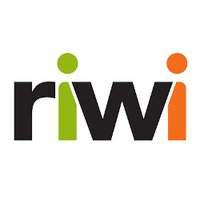Reaching new voices with new tech in digital citizen engagement

As part of leading the creation of the World Bank's Guide to Evaluating Digital Citizen Engagement, we came into contact with some interesting and innovative new technologies which are creating new opportunities for governments and donors to engage with citizens, beneficiaries, end-users, clients . . . [don't get me started on terminology!]
One of the most innovative we saw was RIWI - they explain more of how their technology works and some of the cool things they've been doing with it below.
"While diverse citizen voices are critical to the development, implementation and assessment of global initiatives, gathering citizen opinion can be exceptionally difficult, especially in hard to reach countries, and for socially or politically sensitive topics.
One approach, initially applied at the University of Toronto for global pandemic research, has been developed by global data company RIWI. The web-based technology, known as RDIT (Random Domain Intercept Technology), allows organizations to engage online populations who do not usually, or ever answer surveys. The technology accesses randomized and diverse local populations based on unintentional Internet navigation and data input errors. Since its development in 2009 it has reached millions of respondents in every country and territory in the world, and on any device including smartphones and tablets. (For those of a more technical persuasion, here are some details of how RDIT works.)
So how can it be applied? On May 17th, 2015 for the International Day Against Homophobia and Transphobia, RIWI partnered with the International Lesbian, Gay, Bisexual, Transgender, and Intersex Association (ILGA) to release data surrounding the question “Should same-sex marriage be legal?”. RIWI was able to gather data from 51,000 respondents anonymously in 51 countries making it the largest survey ever done on this topic. Similarly, working with Greenpeace, in just under three weeks, the technology surveyed over 30,000 people in 30 countries on the topic of creating an arctic sanctuary as well as inviting interested respondents to further engage in the campaign.
Other organizations who are using the technology include the World Bank, the International Foundation for Electoral Systems, The International Association of Prosecutors, The MasterCard Foundation, the Munk School of Global Affairs and others.
Of course all technologies have limitations, and in this case the technology only reaches people who have access to the Internet. While in economically developed countries access to the Internet is increasingly near universal, in developing countries this is often not the case, and respondents will mirror the demographic profile of the Internet in their country, which is generally younger, more male, more urban, and not from the lowest socio-economic groups.
From social media analytics, to online communities, to RDIT; capturing a wide array of opinions from thousands of people has never been more achievable. While there is no single universal technology that can provide an entire range of insights necessary to fully understand complex issues and situations, the capability to engage citizens of all backgrounds is definitely increasing."
RIWI is a global data capture technology company, whose patented Random Domain Intercept Technology (RDIT™) is the only all-device technology capable of randomly intercepting online survey respondents in every Web-enabled country and territory in the world. RIWI offers organizations new insights from people who do not typically or ever answer surveys, enabling a unique lens into market intelligence for services such as multi-country brand awareness, consumer usage and attitudes, international security and risk. For more information, please visit: www.riwi.com
